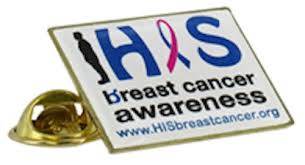Understanding Breast Cancer: Awareness, Risks, and Advances
Breast cancer remains one of the most prevalent cancers among women worldwide, accounting for a significant number of diagnoses each year. Understanding this complex disease, its risk factors, early detection, and recent advancements in treatment is crucial for improving outcomes and fostering awareness.
What is Breast Cancer?
Breast cancer originates in the cells of the breast, primarily affecting women, though it can also occur in men. The disease can manifest in various forms, with invasive ductal carcinoma being the most common. Breast cancer can spread to surrounding tissues or metastasize to other parts of the body if not detected and treated early.
Risk Factors
Several risk factors can increase a person's likelihood of developing breast cancer. Some of these are modifiable, while others are not. Non-modifiable risk factors include age, genetics, and family history. Women over 55 are at higher risk, and individuals with BRCA1 or BRCA2 gene mutations have a significantly increased likelihood of developing the disease.
Modifiable risk factors include lifestyle choices such as alcohol consumption, obesity, and physical inactivity. Research indicates that maintaining a healthy weight, exercising regularly, and limiting alcohol intake can help reduce breast cancer risk. Hormonal factors, such as age at first menstruation and menopause, also play a role in an individual’s risk.
Symptoms and Detection
Early detection is vital for successful treatment outcomes. Common symptoms of breast cancer include:
- A noticeable change in the size or shape of the breast
- A lump or mass, which may or may not be painful
- Changes in the skin, such as dimpling or redness
- Discharge from the nipple
Regular screenings, such as mammograms, are essential for early detection. Guidelines suggest that women begin mammography screenings at age 40 or earlier if they have a family history of breast cancer. Clinical breast exams and self-exams are also recommended to complement routine screenings.
Advances in Treatment
Over the past few decades, significant advancements have been made in breast cancer treatment, leading to improved survival rates and quality of life for patients. Treatment options vary depending on the type and stage of cancer and may include:
1. Surgery: Lumpectomy (removal of the tumor) and mastectomy (removal of one or both breasts) are common surgical options.
2. Radiation Therapy: Often used post-surgery, radiation therapy targets remaining cancer cells to reduce the risk of recurrence.
3. Chemotherapy: This systemic treatment uses drugs to kill rapidly dividing cancer cells, often employed before or after surgery.
4. Hormonal Therapy: For hormone-receptor-positive breast cancers, medications that block estrogen can be effective in slowing or stopping the growth of cancer.
5. Targeted Therapy: Recent developments have introduced targeted therapies that focus on specific characteristics of cancer cells, offering personalized treatment options. HER2-positive cancers, for instance, can be treated with drugs that target the HER2 protein.
The Importance of Support and Awareness
Beyond medical treatment, emotional support and community awareness are vital for patients and their families. Support groups and counseling can help individuals navigate the emotional challenges of a breast cancer diagnosis. Additionally, public awareness campaigns play a critical role in educating the community about risk factors, early detection, and treatment options.
Conclusion
Breast cancer is a multifaceted disease that continues to affect millions globally. By understanding the risk factors, recognizing symptoms, and promoting regular screenings, individuals can take proactive steps in the fight against breast cancer. Advances in treatment offer hope, but continued research, awareness, and community support are essential for improving outcomes and ultimately finding a cure.



No comments yet
Be the first to share your thoughts!